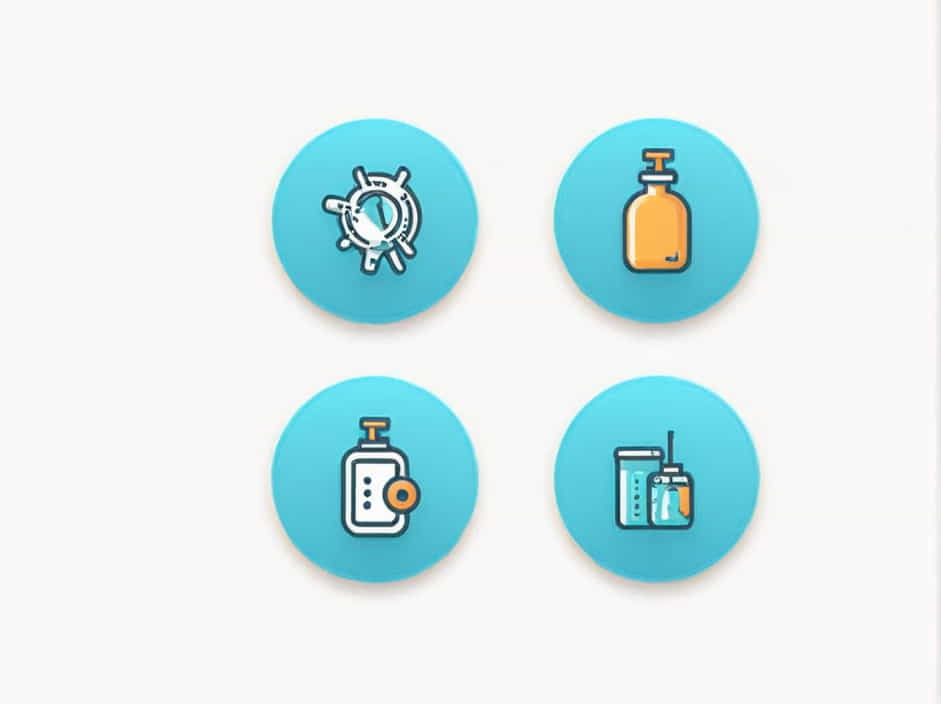The role of a Quartermaster and Chemical Equipment Repairer (91J) in the military is crucial for maintaining essential equipment used in logistics, decontamination, and chemical warfare protection. This highly skilled position requires technical expertise and problem-solving abilities to ensure that quartermaster and chemical equipment function properly.
One of the most common questions for those considering this career is: What is the salary of a Quartermaster and Chemical Equipment Repairer? This topic provides an in-depth look at salary expectations, factors affecting earnings, and career growth opportunities in this field.
Understanding the Role of a Quartermaster and Chemical Equipment Repairer
Before discussing salary, it’s important to understand the job itself. Quartermaster and Chemical Equipment Repairers are responsible for maintaining, repairing, and troubleshooting various types of equipment, including:
- Water purification units
- Chemical detection and decontamination systems
- Laundry and bath units
- Pumps, heaters, and air filtration systems
This role is primarily found in the U.S. Army, but similar positions exist in other military branches and private defense contractors.
Salary Overview
Base Pay for Active-Duty Military
For those serving in the U.S. Army, the salary of a Quartermaster and Chemical Equipment Repairer (91J) depends on rank, years of service, and additional allowances.
The base pay for enlisted soldiers as of 2024 is as follows:
- Private (E-1): $25,000 per year
- Private First Class (E-3): $28,000 – $32,000 per year
- Specialist (E-4): $32,000 – $40,000 per year
- Sergeant (E-5): $36,000 – $48,000 per year
- Staff Sergeant (E-6): $42,000 – $55,000 per year
In addition to base pay, service members receive allowances for housing (BAH), food (BAS), and bonuses, which significantly increase total compensation.
Additional Military Benefits
Apart from salary, Quartermaster and Chemical Equipment Repairers in the military receive:
- Free housing or housing allowances
- Medical and dental benefits
- Retirement pensions and 401(k)-style savings plans
- Tuition assistance and GI Bill for education
- Annual bonuses for special skills or reenlistment
These benefits add substantial value to overall earnings.
Civilian Salary After Military Service
Many veterans transition into civilian careers using their military-acquired skills. Civilian roles related to quartermaster and chemical equipment repair include:
- Industrial machinery mechanics
- HVAC technicians
- Chemical plant maintenance specialists
- Defense contractors (working with military equipment)
Average Civilian Salary
According to salary data, civilian roles related to chemical equipment repair and maintenance earn:
- Entry-level technicians: $40,000 – $50,000 per year
- Experienced mechanics: $50,000 – $70,000 per year
- Supervisory positions: $70,000 – $90,000 per year
- Defense contractors: $80,000 – $100,000 per year (depending on specialization)
Factors influencing civilian salaries include experience, certifications, location, and employer type (private companies, government agencies, or defense contractors).
Factors Affecting Salary
Rank and Experience
In the military, promotions significantly impact salary. Higher ranks bring increased base pay, better benefits, and leadership opportunities. Soldiers who advance from E-1 to E-6 or higher see steady salary growth.
Special Skills and Certifications
Certain technical certifications can boost earnings, both in the military and civilian sectors. Some valuable certifications include:
- EPA Section 608 Certification (for HVAC work)
- ASE Certification (for automotive and equipment repair)
- OSHA Safety Certifications
- Military Technical Certifications
These certifications help service members transition into higher-paying civilian jobs after their military service.
Deployment and Special Pay
Quartermaster and Chemical Equipment Repairers deployed to combat zones or hazardous environments receive additional pay, including:
- Hazardous Duty Pay: $150 per month
- Combat Pay: Up to $225 per month
- Family Separation Allowance: $250 per month
These additional earnings can significantly increase total annual income during active service.
Location and Employer Type (For Civilian Jobs)
In civilian careers, salary varies by location. High-demand areas with military bases, defense companies, or chemical plants offer higher wages. Examples of high-paying locations include:
- California (due to defense and aerospace industries)
- Texas (major defense contractors and military bases)
- Virginia (high concentration of military and government jobs)
Government jobs with federal agencies (such as the Department of Defense) tend to pay more than private-sector employers in similar roles.
Career Growth and Advancement
Military Promotion Opportunities
In the U.S. Army, Quartermaster and Chemical Equipment Repairers can advance through the enlisted ranks or pursue warrant officer or commissioned officer positions, which come with higher salaries and leadership responsibilities.
Potential career progression:
- Enlisted Career Path: Progression from Private (E-1) to Sergeant Major (E-9)
- Warrant Officer Path: Transition to Warrant Officer (WO1 to CW5)
- Commissioned Officer Path: Become an Ordnance Officer (starting at O-1, Second Lieutenant)
Each promotion brings higher pay, more responsibilities, and additional benefits.
Civilian Career Advancement
For veterans transitioning to the civilian workforce, career growth depends on:
- Gaining industry certifications
- Pursuing higher education (technical degrees or engineering fields)
- Networking within defense and industrial maintenance industries
Many former military personnel find high-paying jobs in defense contracting, industrial maintenance, and equipment repair management.
The salary of a Quartermaster and Chemical Equipment Repairer varies depending on military rank, experience, and civilian career path. Active-duty service members start with a base salary of $25,000 – $55,000 per year, with additional benefits and allowances.
After military service, transitioning to a civilian career in equipment maintenance, industrial repair, or defense contracting can lead to salaries ranging from $50,000 to over $100,000 annually.
For those considering this career, gaining certifications, acquiring experience, and seeking advancement opportunities are key to maximizing earnings and long-term success.
